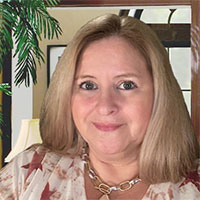Grasping the Difference Between Emotion and Intuition
 During psychic sessions, clients often express sentiments like, “I just have this gut feeling,” or “I’m not sure, but something about this feels wrong.” I find joy in these observations. It indicates they are attuning to the subtle cues of their internal guidance system. They may still be hesitant to fully trust it, yet they have begun their journey toward a heightened awareness of the whispers from their higher self seeking acknowledgment.
During psychic sessions, clients often express sentiments like, “I just have this gut feeling,” or “I’m not sure, but something about this feels wrong.” I find joy in these observations. It indicates they are attuning to the subtle cues of their internal guidance system. They may still be hesitant to fully trust it, yet they have begun their journey toward a heightened awareness of the whispers from their higher self seeking acknowledgment.
The difficulty arises when distinguishing whether that “feeling” we experience is a genuine intuitive impulse or merely an emotion surfacing from our human experience. From a spiritual viewpoint, emotions and intuitions differ fundamentally. Both hold significance, yet they operate in distinctly different manners.
By differentiating them, you can make decisions with clearer insight, evade unnecessary turmoil, and travel more assuredly along your spiritual journey.
Although emotions and intuitions may appear similar as they both emerge within us without a coherent rationale, emotions are generally tied to our human reactions. They can be catalyzed by our surroundings, personal convictions, or our physical condition. As any seasoned drama enthusiast can attest, they can often be loud, vibrant, and filled with urgency!
Conversely, intuition tends to be subtle, serene, and unexpectedly neutral. Even the most profound intuitive insights can lack emotional charge. They convey a straightforward clarity that neither screams nor demands, but simply exists. Indeed, these emotionally neutral intuitive revelations are frequently the most precise and impactful, free from the entanglements of fleeting moods and personal biases.
Learn to trust it, trust your intuition, and in time, everything you seek to understand will reveal itself, and your path will unfold before you ~ Caroline Joy Adam
This illustrates why even seasoned psychics often seek counsel from fellow psychics. The same experts who can effortlessly assist their clients in discerning between emotions and intuition can become easily ensnared in their personal life challenges. When intense emotions arise, perspective can quickly diminish. This is when grounding techniques, deep breathing, and moments of quiet introspection can profoundly impact.
Identifying Emotion
From an energetic standpoint, emotions are integral to our human operating system. They flow through us in waves. Sometimes their triggers are clear: a conflict, a piece of news, a sudden letdown. Other times, they seem to emerge from nowhere.
Here’s how to identify an emotion:
They possess intensity. Be it anger, joy, fear, or excitement, emotions typically carry a charge.
They shift rapidly. Most emotional states can transform within minutes or, at most, a few hours, depending on circumstances.
They usually come with an explanation. If your mind is reasoning, justifying, or revisiting scenarios, chances are you’re experiencing an emotional state.
They can be all-consuming. Emotions can capture your full attention and push you into reactive mode.
Emotions are not inherently “bad.” They are a natural and often beautiful facet of human experience. However, they may not always serve as the best compass for major life choices, as they often reflect temporary conditions or past memories rather than deeper truths, clear wisdom, and your highest good.
Identifying Intuition
Intuition represents the soul’s subtle language. It often arrives softly, without drama, akin to a still lake mirroring truth.
Here’s what to observe regarding intuition:
Intuition is calm and steady. Even if the message feels urgent, the sensation is not frantic.
Intuition is simple. It doesn’t provide long-winded explanations; it’s simply a knowing.
Intuition is consistent. If you check in later, the message feels unchanged.
Intuition lacks intense emotion. You may feel some serenity upon acknowledging the message, but there are no emotional highs or lows.
Intuition is neutral and clear. There’s a quiet certainty that’s hard to articulate, yet you trust it regardless.
The challenge lies in the fact that intuition doesn’t compete for your attention like emotions do. You must cultivate space to hear it!
Distinguishing the Difference
If you’re not completely confident in distinguishing between emotions and intuition, you’re not alone. This is a skill that even experienced psychics and spiritual practitioners continuously refine throughout their lives. The good news is that with focus and practice, anyone can become more attuned to these subtle distinctions.
Consider it as learning a new form of language, one that belongs to your inner realm. Initially, the words and tones may blur together, but over time you’ll start recognizing distinct patterns. You’ll soon discern whether what you sense is a fleeting emotional wave or a quiet intuitive hint prompting a choice or action.
The most effective way to nurture this ability is through regular practice in your daily life. Below are some straightforward techniques you can utilize at any moment to enhance your discernment.
PAUSE BEFORE YOU ACT
When a feeling surfaces, take a moment. Close your eyes, breathe slowly a few times, and reflect: Is this feeling dominant and charged, or tranquil and steady? Generally, dominant signals indicate emotion while steady sensations hint at intuition.
The key is to create a gap between the feeling and your reaction. Instead of jumping on the first impulse, slow down intentionally. This brief pause shifts you from an automatic, reactive position to a more deliberate and observant one. It allows you to discern between the high-energy signals of emotion and the calm, steadfast guidance of intuition, leading to more thoughtful choices.
Emotions often carry urgency, intensity, and mental noise. They feel “charged” because they brim with energy and typically demand immediate attention. This intensity is a clear marker that you are encountering emotion.
Intuition, in contrast, is quiet and constant. It doesn’t present as a loud or demanding sensation but rather a subtle, consistent one. It embodies a knowing that lacks urgency or frenzy. It remains firm without the need for dramatic buildup, and this tranquil persistence often signals the experience of intuition.
CHECK IN WITH YOUR BODY
Emotions and intuitions manifest differently in the body. Emotions are often intense, energetic, and can be perceived as constriction or heightened physical sensations. They can evoke warmth, tension, or tightness. For instance, anger may lead to a flushed face and tight fists, while anxiety can provoke a churning stomach or tight chest. Fear might trigger a racing heartbeat or tense muscles.
Intuition, however, generally feels more subtle, expansive, and peaceful. It might present as a sense of lightness, coolness, or an open space in your chest or belly. These gentle physical cues typically signify a message from your deeper awareness.
LOOK FOR A BACKSTORY
When you feel a strong emotion, your mind often seeks to construct a detailed narrative around it. For example, if you experience anger, your thoughts might articulate, “I am angry because my boss unfairly criticized my work in front of everyone.” This mental narrative justifies and clarifies the emotion, helping your brain comprehend it and assign cause or blame.
Intuition approaches differently. It emerges as a direct, unfiltered signal devoid of a logical explanation or detailed story. You might feel an urge to steer clear of a particular street without knowing why. It’s simply a clear, internal nudge. As I frequently tell clients, intuition simply communicates, “Do this” or “Pay attention here.” It conveys immediate information without the mental clutter of a backstory.
ALLOW TIME TO PASS
If feasible, allow time before acting. The age-old advice to “sleep on it” remains sound. Emotions may dissipate or transform with rest, nourishment, or a shift in surroundings. Intuition, however, usually retains its essence even as your mood fluctuates.
Emotions are fleeting and reactive. They are significantly impacted by immediate circumstances and physical wellness. A surge of anger might fade after sleep or a meal, while sadness may lighten following a nature walk. Because emotions are connected to your current state, they can change as that state shifts.
Intuition stands apart. It stays steady and persistent, irrespective of mood, energy level, or environment. If you have a strong intuitive sense regarding something, such as embarking on a new project or avoiding a certain individual, that feeling will likely remain unchanged after you rest, eat, or alter your surroundings.
What To Do If You’re Still Unsure
You don’t need to initiate with significant life decisions. Start practicing with small matters first, like choosing a different route home, predicting which friend may call that day, or determining whether you’ll enjoy an upcoming event. The more you engage in this practice, the better you’ll recognize your personal intuitive style and tone.
Even with practice, there will be instances where clarity is elusive. That’s completely normal. If you find yourself unsure, you can:
Pray for clarity and discernment. A simple, heartfelt prayer can quiet mental noise and invite higher wisdom to come forth. Request the ability to perceive the truth of the situation and to recognize your intuition clearly.
Seek assistance from ancestors, guides, or angels. These spiritual allies are always ready to help. You can communicate with them silently or aloud, asking them to show you the distinction between emotion and intuition or send signs confirming what you are sensing.
Utilize a divination method. Tools like tarot, oracle cards, runes, or pendulums can aid you in enhancing your awareness and building confidence in interpreting your internal signals.
Leverage crystal energy grids or placements. Working with crystals can heighten intuitive awareness. You might surround yourself with stones like amethyst, lapis lazuli, or clear quartz while meditating, or create a small grid to focus your intention on discernment.
Get a second opinion. Consider seeking a psychic reading from a reputable psychic or medium. As I often remind clients, even psychics consult other psychics.
Ground yourself. Engaging in nature walks, meditation, and deep breathing can help soothe emotional turbulence.
Document your impressions. Journaling your insights over time can reveal patterns that clarify whether you are experiencing emotion or intuition.
The aim is not to eliminate all emotion from your decision-making or problem-solving processes, but to discern when you are guided by your inner compass versus merely reacting to transient feelings or minor dramas.
The more you practice distinguishing between emotions and intuition, the stronger your spiritual connection will become. You will begin to trust your inner wisdom and create opportunities for your spirit guides to communicate more clearly with you.
When Emotions and Intuition Collaborate
While emotions and intuition are distinct, they can coexist, and when they do, it can serve your highest good. Spirit may allow them to intertwine to capture your attention toward an essential message you need to receive.
For instance, you might have an intuitive sense that a relationship or job no longer aligns with you, coupled with a strong feeling of sadness or frustration. The emotion amplifies the intuitive message, imparting weight and urgency that makes it harder to overlook.
This fusion can also occur during moments of joy. You may intuitively recognize that you are on the right path while simultaneously feeling a surge of excitement or gratitude. The emotion reinforces the intuitive assessment, offering powerful affirmation that you are moving in concert with your true purpose.
When emotions and intuition arise together, the key is to approach them with curiosity instead of confusion. You might ponder: What is the core message my intuition is communicating? What does this emotion contribute to the overall picture? Is it motivating me, warning me, or compelling me to act? If I temporarily set aside the emotion, does my intuitive message remain consistent?
By unpacking the layers, you can value the emotion for the energy it provides while still perceiving the steady guidance underlying it. In doing so, you benefit from both — the driving force of emotion and the grounded wisdom of intuition — without allowing one to overshadow the other.
Keep in mind that spirit often works through both our hearts and our intuitive knowledge. When the two come together, it can signify that what you are sensing truly matters and warrants your attention.
Intuition is one of the most priceless tools you can carry throughout life. It helps you make choices that resonate with your soul’s purpose, avoid unnecessary entanglements, and navigate your path with confidence and grace.
In our society, we are frequently taught to dismiss our inner nudges in favor of logic or external dictates. Yet your inner guidance exists for a purpose. It serves as a built-in compass that is perpetually accessible to you.
The next time you find yourself saying, “I just have this feeling,” pause and listen. Ask yourself whether it’s a fleeting emotion passing through or the tranquil voice of intuition directing you onward. With practice, you will identify the difference and realize that your intuition has been guiding you all along.
|
Known as The Psychic’s Psychic, since 1998, Isadora has read for thousands all over the globe, her remarkable roster including clients from the Obama administration, Fortune 500 CEO’s, and distinguished figures in Hollywood. Her precise (Gemini) accuracy is truly impressive, enabling her to perceive individuals at the Soul Level and effectively address inquiries across a vast array of topics, from relationship issues and professional decisions to past lives, etc.—anything that necessitates clear answers and sharp insight. She excels at identifying underlying patterns that lie beneath your current circumstances, providing you with vital information to positively influence your future. If you desire a reading with this compassionate, straightforward, exceptionally accurate, and unwavering Psychic, you can find Isadora at PsychicAccess.com. |
















